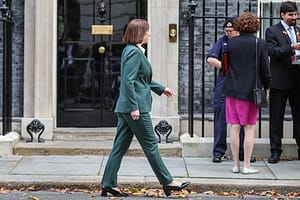If the Labour government increases the higher rate of CGT, it could alter risk-taking behaviours, as fund managers will “have a lot less upside from ‘getting it right’ and would probably shy away from risky, high-return opportunities”, one Silicon Valley-based venture capitalist has warned.
There are rumours that, in the forthcoming Autumn Budget, the new Labour government could increase Capital Gains Tax (CGT) to align with income tax in order to address the £20bn budget deficit. This could see the upper band of CGT (28%) rise to as high as 45%, which could have a profound impact on investment funds’ compensation, particularly carried interest, and might alter risk-taking behaviours.
Aman Verjee, General Partner at Silicon Valley-based Practical VC, added, “Amazon, PayPal, Google, Meta, AirBNB, Uber, Netflix and dozens of other companies were created with this kind of high-risk capital. Managers playing for less upside will just ‘play it safe’ and protect their downside, which makes it a lot tougher to build the next generation of corporate leaders.”
Verjee also warned it could make the UK less attractive to investors: “If the UK wants to attract talented entrepreneurs, it has to have a competitive tax code.
“In the US and Canada, carried interest is taxed at less than 20%; in France, Germany, Italy and Spain it’s 25%-30%. In countries like Singapore, UAE, and Switzerland, it’s zero. If the UK went far above international norms, we would simply stop hiring and investing in the UK.”
Meanwhile, Gabriel McKeown, Head of Macroeconomics at Sad Rabbit Investments, said that “aligning CGT with income tax would lead many investors to question why they should bet on a dark horse when the winnings are taxed away. This could stifle innovation and slow the flow of capital into emerging sectors, with investors favouring safer, lower-yield assets over volatile, high-return opportunities”.
Ravi Longia, Partner, Head of Investment Funds at DWF Law, was also concerned: “Hiking the tax on carried interest could have serious consequences for the UK economy.
“Approximately 3,000 people receive carried interest per year, so while it represents a small number of individuals, those affected include key people in private equity, venture capital and real estate funds, all of which play a critical role in the UK economy, including investing in many aspects of our economy, like infrastructure.
“There are concerns that a tax hike could deter investment or encourage managers to move to another jurisdiction with more favourable carried interest taxation rules.”






Leave a Comment